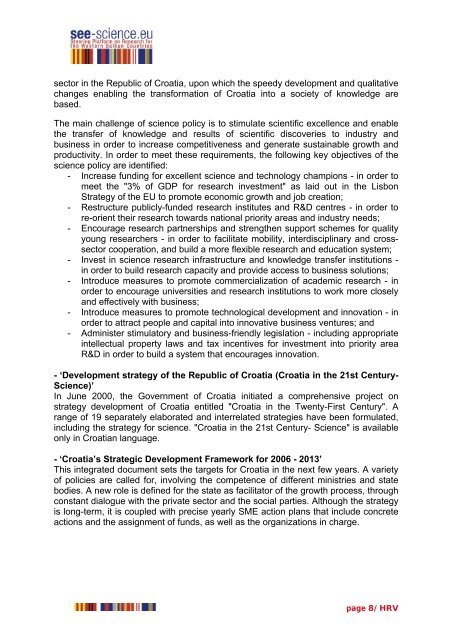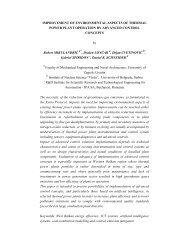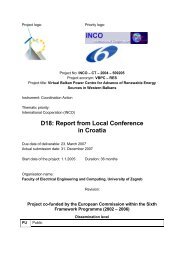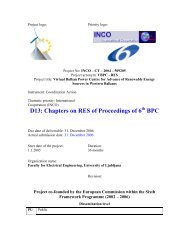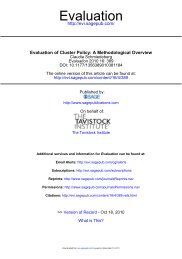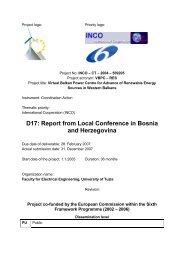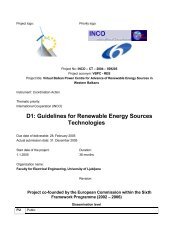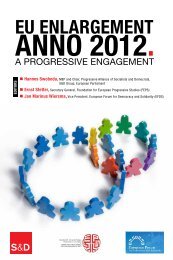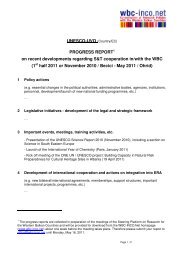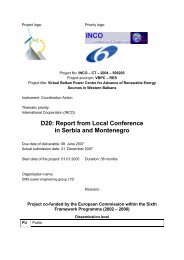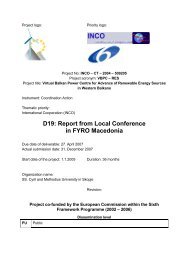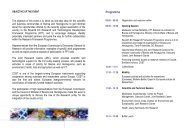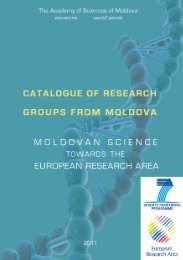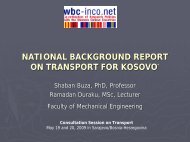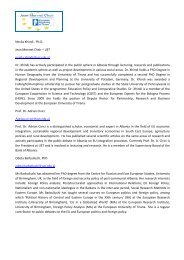S&T Country Report - Albania - WBC-INCO Net
S&T Country Report - Albania - WBC-INCO Net
S&T Country Report - Albania - WBC-INCO Net
Create successful ePaper yourself
Turn your PDF publications into a flip-book with our unique Google optimized e-Paper software.
sector in the Republic of Croatia, upon which the speedy development and qualitative<br />
changes enabling the transformation of Croatia into a society of knowledge are<br />
based.<br />
The main challenge of science policy is to stimulate scientific excellence and enable<br />
the transfer of knowledge and results of scientific discoveries to industry and<br />
business in order to increase competitiveness and generate sustainable growth and<br />
productivity. In order to meet these requirements, the following key objectives of the<br />
science policy are identified:<br />
- Increase funding for excellent science and technology champions - in order to<br />
meet the "3% of GDP for research investment" as laid out in the Lisbon<br />
Strategy of the EU to promote economic growth and job creation;<br />
- Restructure publicly-funded research institutes and R&D centres - in order to<br />
re-orient their research towards national priority areas and industry needs;<br />
- Encourage research partnerships and strengthen support schemes for quality<br />
young researchers - in order to facilitate mobility, interdisciplinary and crosssector<br />
cooperation, and build a more flexible research and education system;<br />
- Invest in science research infrastructure and knowledge transfer institutions -<br />
in order to build research capacity and provide access to business solutions;<br />
- Introduce measures to promote commercialization of academic research - in<br />
order to encourage universities and research institutions to work more closely<br />
and effectively with business;<br />
- Introduce measures to promote technological development and innovation - in<br />
order to attract people and capital into innovative business ventures; and<br />
- Administer stimulatory and business-friendly legislation - including appropriate<br />
intellectual property laws and tax incentives for investment into priority area<br />
R&D in order to build a system that encourages innovation.<br />
- ‘Development strategy of the Republic of Croatia (Croatia in the 21st Century-<br />
Science)’<br />
In June 2000, the Government of Croatia initiated a comprehensive project on<br />
strategy development of Croatia entitled "Croatia in the Twenty-First Century". A<br />
range of 19 separately elaborated and interrelated strategies have been formulated,<br />
including the strategy for science. "Croatia in the 21st Century- Science" is available<br />
only in Croatian language.<br />
- ‘Croatia’s Strategic Development Framework for 2006 - 2013’<br />
This integrated document sets the targets for Croatia in the next few years. A variety<br />
of policies are called for, involving the competence of different ministries and state<br />
bodies. A new role is defined for the state as facilitator of the growth process, through<br />
constant dialogue with the private sector and the social parties. Although the strategy<br />
is long-term, it is coupled with precise yearly SME action plans that include concrete<br />
actions and the assignment of funds, as well as the organizations in charge.<br />
page 8/HRV


